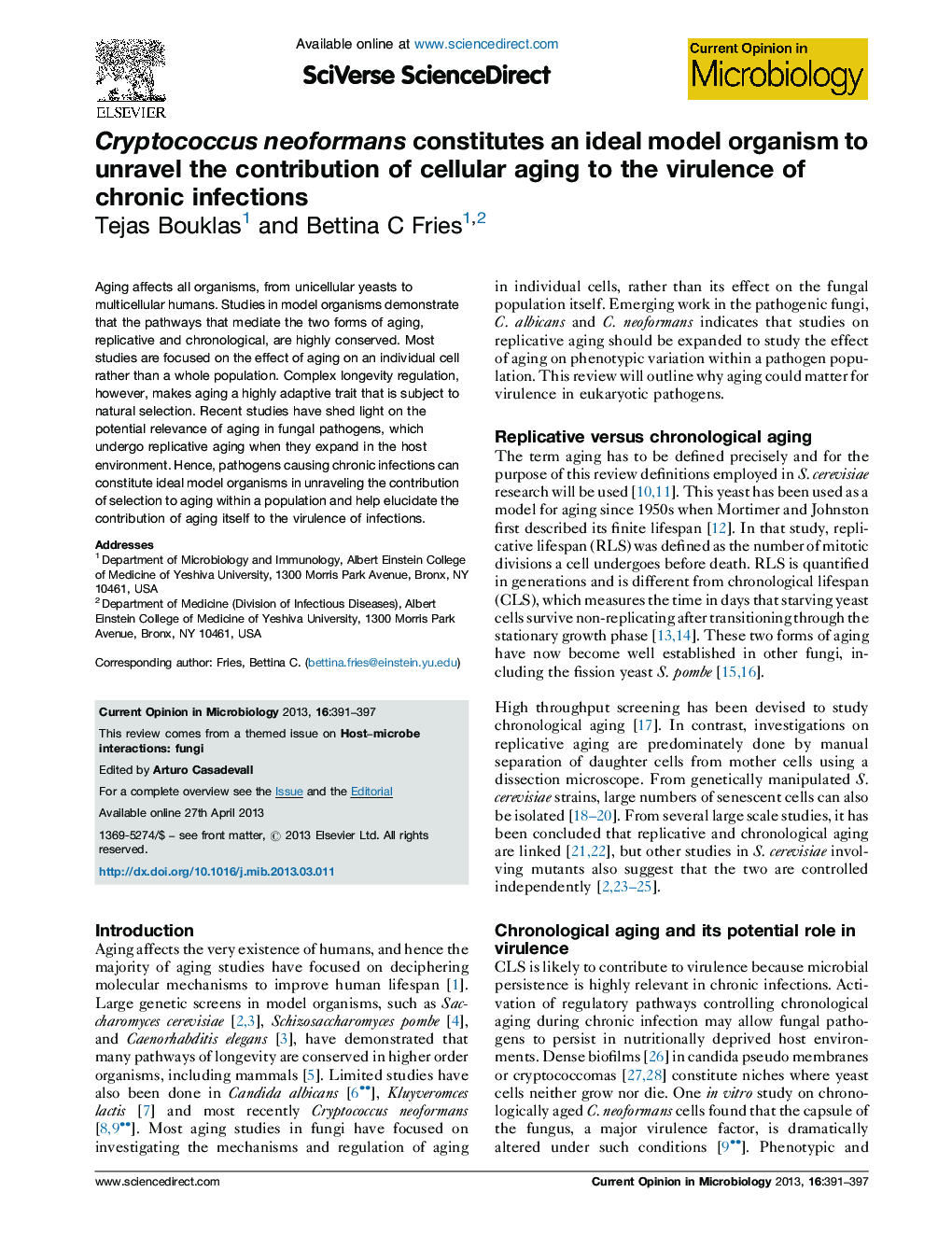| Article ID | Journal | Published Year | Pages | File Type |
|---|---|---|---|---|
| 6132236 | Current Opinion in Microbiology | 2013 | 7 Pages |
Abstract
Aging affects all organisms, from unicellular yeasts to multicellular humans. Studies in model organisms demonstrate that the pathways that mediate the two forms of aging, replicative and chronological, are highly conserved. Most studies are focused on the effect of aging on an individual cell rather than a whole population. Complex longevity regulation, however, makes aging a highly adaptive trait that is subject to natural selection. Recent studies have shed light on the potential relevance of aging in fungal pathogens, which undergo replicative aging when they expand in the host environment. Hence, pathogens causing chronic infections can constitute ideal model organisms in unraveling the contribution of selection to aging within a population and help elucidate the contribution of aging itself to the virulence of infections.
Related Topics
Life Sciences
Immunology and Microbiology
Microbiology
Authors
Tejas Bouklas, Bettina C. Fries,
